I Didn’t Know Why I Was Running Until I Was Forced to Stand Still
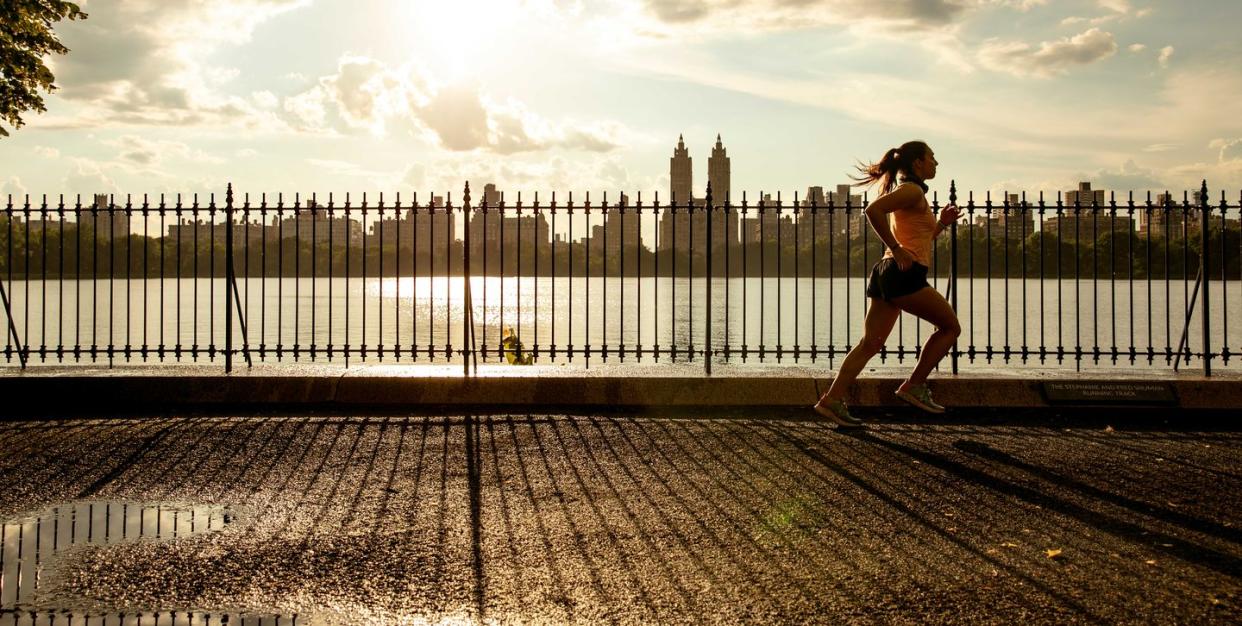
The New Jersey Marathon was to take place almost exactly a year after I dropped out of the Queens marathon, mid-pursuit of a BQ. New Jersey was supposed to be my redemption race. Desperate for another chance at Boston, I had ramped up my training through the winter of 2020, clocking all of my long runs at qualification pace.
On March 12th, New York went into lockdown. New Jersey was postponed to November, and with it my goal of qualifying for Boston. A lost race was insignificant in the face of the broader toll of the pandemic, and yet, I was terrified. With marathon training and most of my usual routine off the table, I had no distractions from the thoughts I had been pushing aside for years. For the first time since I was raped over five years ago, I stopped running.
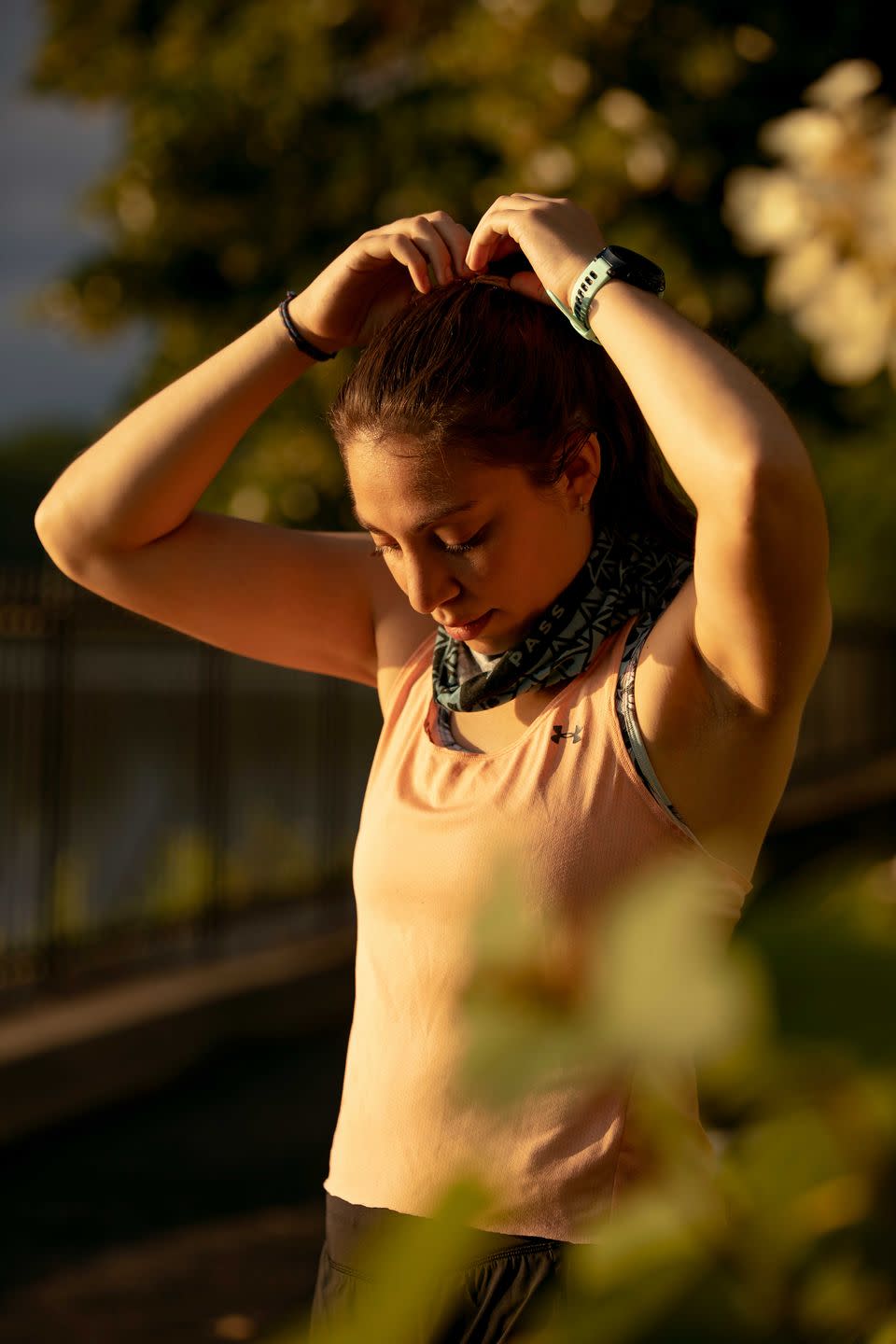
I started training for a marathon the day after my assault. I wrote up a training plan, picked out a goal race, and laid it all out on my calendar. This would be my second marathon. My first had been a year earlier, and I’d been surprised by how smooth and attainable the miles felt. I thought the distance could make me feel powerful again.
The training alone was a form of healing. There was a rhythm to it—waxing and waning between long runs and rest days, my focus narrowed to the cadence of each step. I would lie in bed at night trying to feel my muscles growing. See the fissures sealing back up and the cells expanding underneath my skin.
If I could run a second marathon, I thought, I was still me—my body still had strength and endurance and will—and when race day came, I PR’d by 13 minutes, surrounded by thousands of people who wanted to prove something to themselves, too. I crossed the finish line energized, soaking in the collective force of the run. For the next few years, I kept chasing that feeling.
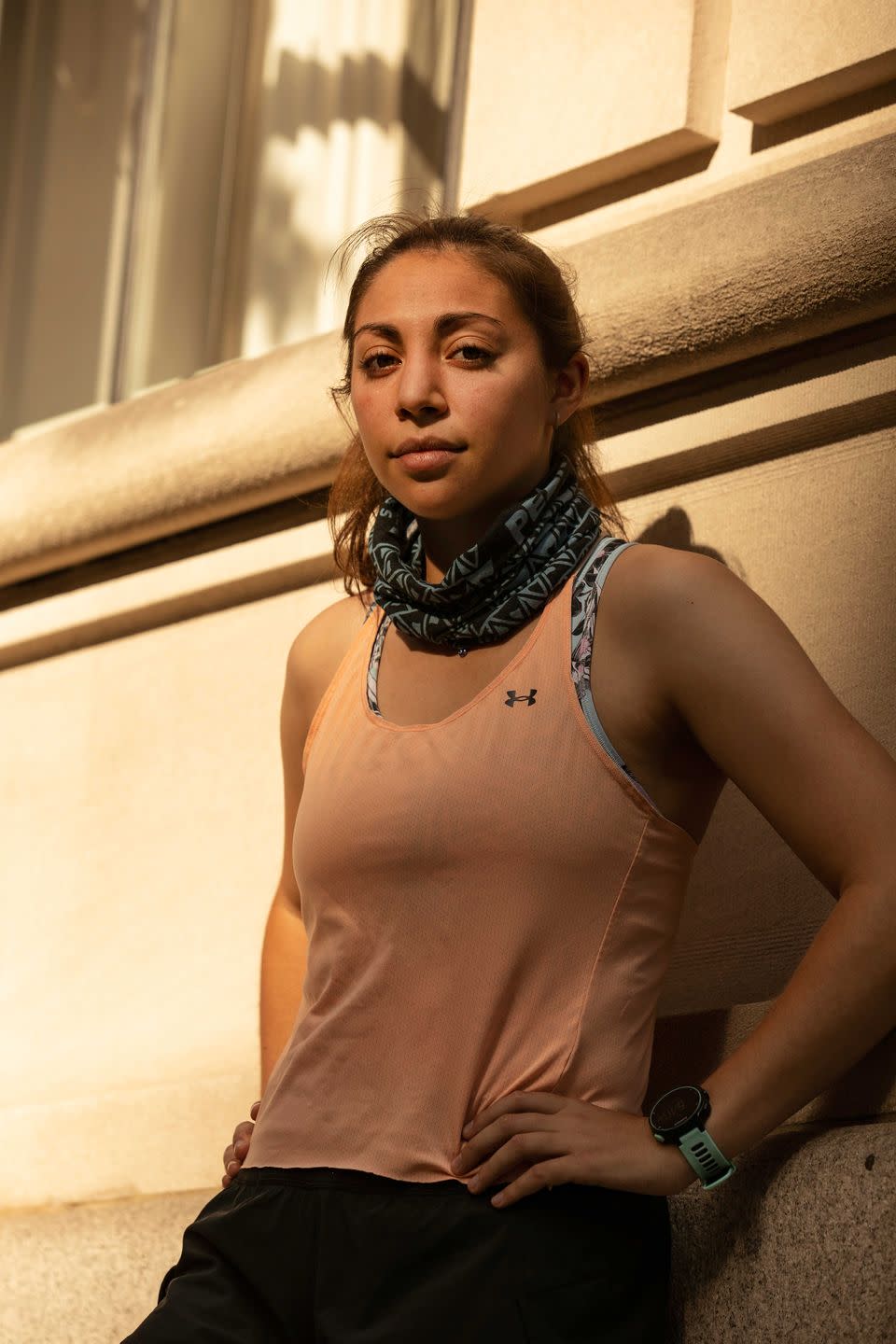
Through dozens of subsequent road races and triathlons, my legs adapted to the miles, and I grew faster. However, no matter how many goals I checked off, I always found myself searching for new benchmarks. Nothing seemed significant enough to give me the feeling of limitlessness that I was after—until I started thinking about Boston. The Boston Marathon felt bigger than anything I’d ever pursued in running, just possible enough to go after.
I signed up for the Queens Marathon intending to break 3:30. But on the morning of the race, I showed up exhausted, coming off a bad cold. Adrenaline pulled me along at a 7-minute pace early on, but by mile 13, my race had deteriorated into a slow, painful walk. I found my friends on the sidelines, slumped down next to them, and watched other runners cross the finish line.
My first instinct was to sign up for the next possible race. The Long Island Marathon was two weeks later, but I never committed. My DNF left me feeling betrayed by my body; the idea of lining up for another attempt was paralyzing. I tried to push the marathon out of my mind and threw myself into triathlon training for the summer, but my confidence was diminished. I dreaded the early-morning workouts I used to look forward to, and I consistently undershot my goals, no matter how hard I pushed myself.
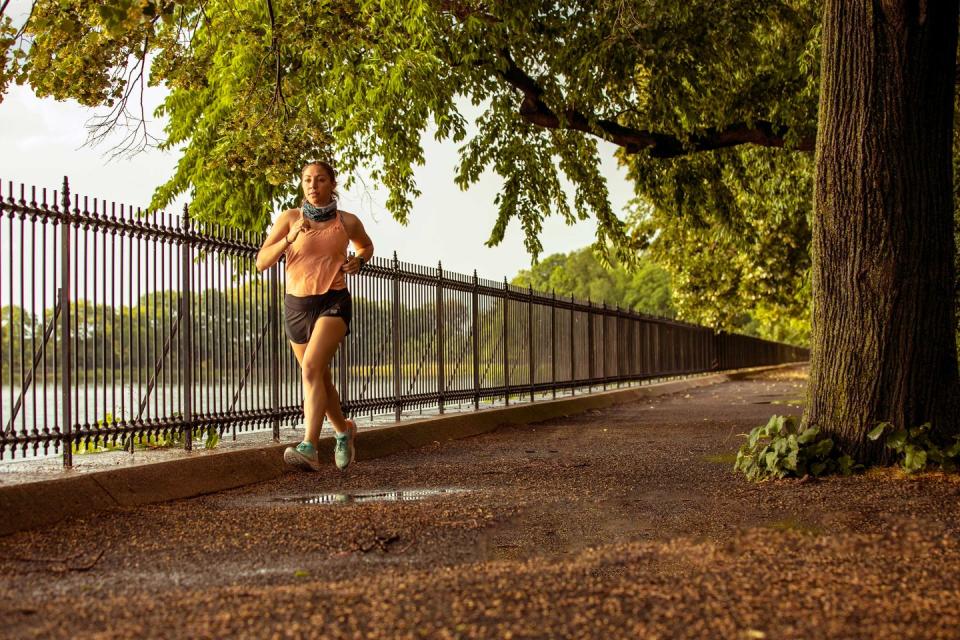
New Jersey was supposed to be the race that rendered that failure insignificant. I needed it to validate the work I’d put in, to validate me for believing I had that race in me. I put everything into my training, and when the pandemic hit and New Jersey was postponed, I just had to accept my unfinished race. For a while, I stood still.
I braced myself for another tide of anxiety, but the main feeling that flooded over me was exhaustion. I was tired of chasing something beyond what I was, tired of pushing myself to depletion and struggling to fill myself back up. For the first time in years, I honored that feeling: I did the thing that runners are most scared of and let myself fall out of shape. I was surprised when I felt relieved.
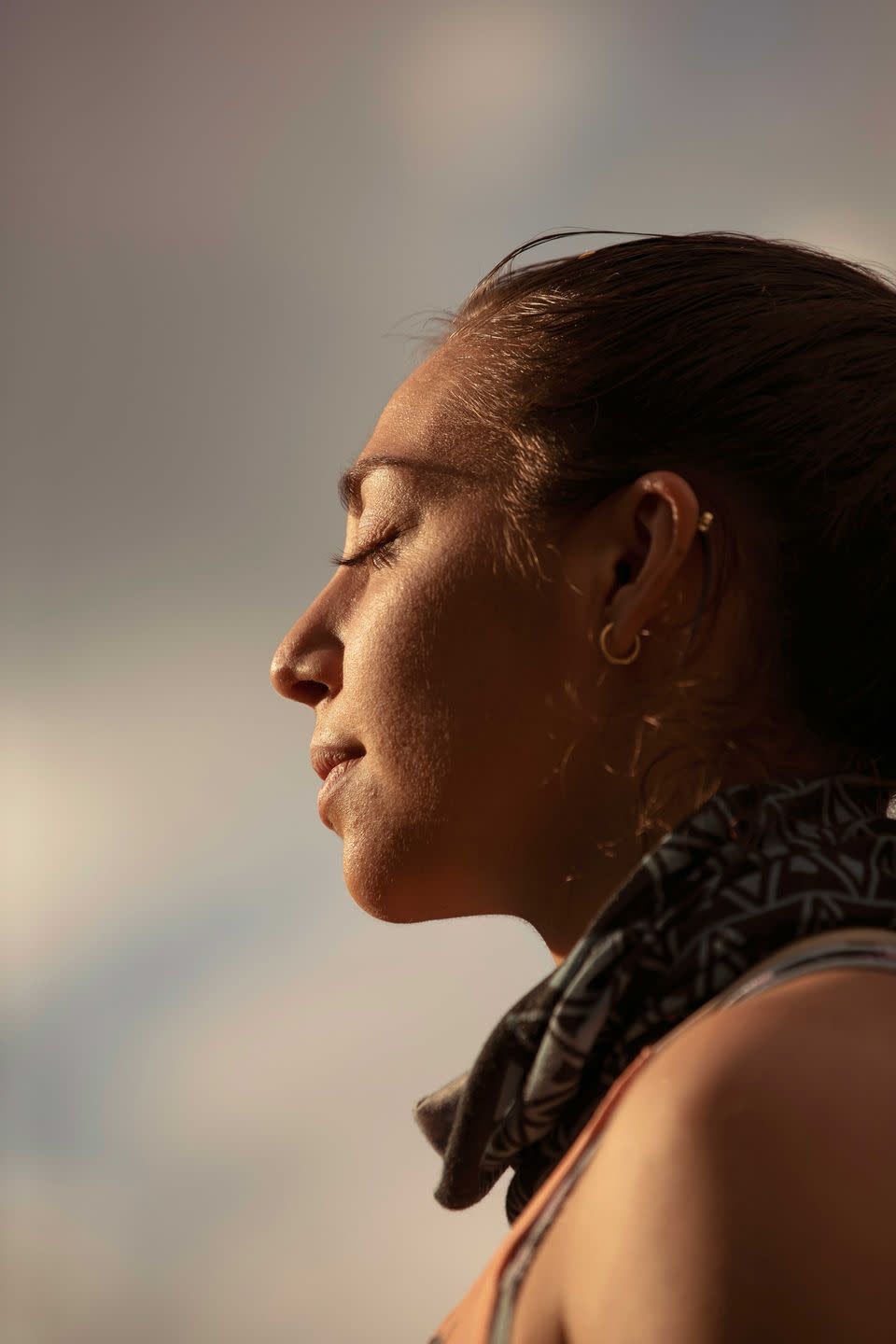
Almost as soon as I let go, running gave back. In the midst of the pandemic’s running boom, friends all over the country started to reach out to tell me that they’d started running. The ones who’d watched me train for all those years, who never quite understood the obsession but remained my biggest champions nonetheless, were finding the same joy in running I used to revel in. They were taking on the miles one at a time, and letting their minds empty out into the fresh air. For them, running was marked by grace.
It was only then that I felt what I had lost. Running was once a state in which I fell into my surroundings, following outlets through the trees, stopping to watch life move and breathe in nature. I missed that kind of peace, and I needed it back desperately.
Slowly, my desire to run came back. I started running aimlessly, at whatever pace felt good. Now, I walk out the door without knowing where I’ll go and follow streets with nice views and paths with big trees. I don’t run everyday—sometimes just a couple times a week—but when I do, it’s renewing. On the days I don’t run, I don’t feel guilty.
For years, I dreaded the holes in my training calendar. My goal races gave me something to focus on, easing my anxiety and giving me a sense of control over my body I believed I had ceded. I was afraid that if I stopped running, I would be forced to face the trauma I had neglected to process for so long. I was afraid to do the work of healing.
The suspension of movement around the world stilled me long enough to recognize that I was building and reconstructing a body that only needed forgiveness to begin with. At its core, healing has a lot in common with endurance sports. The mind and the body are deeply connected. Repetition might turn pain into rhythm, but recovery doesn’t march on if you don’t give your body time to process and heal.
I still have goals. Big ones. I still want to qualify for Boston and finish an Ironman, but I don’t need those wayposts anymore. I am a grittier athlete than I ever thought I could be, and some days—at my best—that feels better than faster. Beginning to move forward, in those first, frightening steps, is winning. So is healing, even if there is no finish line.
No one has a stage to run on this summer, and yet everyone is still running. Every day, I see new runners flowing out of their homes in sneakers and big t-shirts, and I see veteran runners making room for them on the street. I see runners smiling at the top of long hills, celebrating between hard gulps of air and taking in the ground they’ve covered, and I see all of us noticing each other out there, perhaps for the first time in a while. Now, for this moment in time, we are all running for the hell of it, and some days, I can feel us all healing.
You Might Also Like

